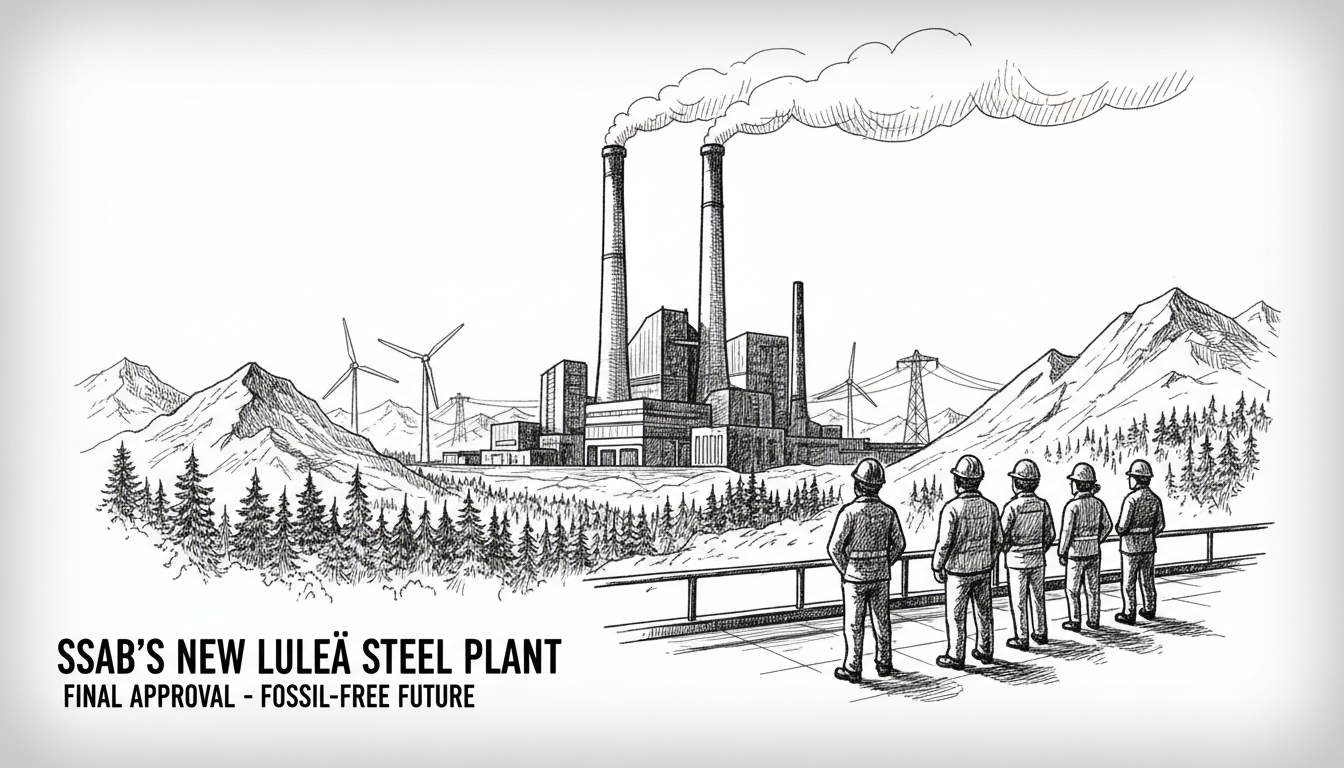SSAB has secured final legal approval for its new electric steel plant in Luleå, Sweden. The Land and Environment Court of Appeal confirmed the permit after reviewing earlier appeals. This decision clears the last major regulatory hurdle for the company's transition from traditional blast furnace production.
The court determined the facility is appropriately located in Luleå. It also confirmed that electric arc furnace technology meets requirements for the best available techniques. The ruling validates SSAB's environmental approach to steel production.
Sara Arvidson, SSAB's head of environmental and energy issues, welcomed the decision. She said the company will now work to fulfill all permit conditions. The project will proceed in a responsible manner according to her statement.
Carl Orrling, technical director and head of SSAB's Transformation Office, explained the environmental impact. Closing the current production will essentially eliminate the company's carbon dioxide emissions in Luleå. This represents a major step toward cleaner steel manufacturing.
The new electric steel plant will replace existing blast furnace-based production. This transition forms part of Sweden's broader industrial transformation toward fossil-free manufacturing. The Nordic country has positioned itself as a leader in green industrial development.
Sweden's environmental court system plays a crucial role in major industrial projects. Companies must demonstrate their operations meet strict environmental standards. The appeals process ensures thorough examination of potential ecological impacts.
Luleå's industrial history makes it a logical location for this transformation. The northern Swedish city has long been a center for steel production and mining. Local expertise and infrastructure support the transition to cleaner manufacturing methods.
Electric arc furnace technology represents a fundamental shift in steel production. Unlike traditional blast furnaces that use coal, these furnaces melt scrap metal using electricity. This method can dramatically reduce carbon emissions when powered by renewable energy.
Sweden's electricity grid already relies heavily on renewable sources. Hydropower and nuclear energy provide most of the country's electricity. This makes electric steel production particularly suitable for Swedish conditions.
The approval comes as European industries face increasing pressure to decarbonize. New regulations and market demands are pushing companies toward cleaner production methods. SSAB's project aligns with both Swedish and European climate goals.
What does this mean for international observers? The project demonstrates how traditional industries can transform while maintaining operations in existing industrial centers. Other European steel producers will watch SSAB's progress closely as they plan their own transitions.
The company now faces the complex task of constructing new facilities while maintaining current production. Managing this transition without disrupting operations or employment will be challenging. Success could provide a blueprint for similar transformations across heavy industry.
Local communities in northern Sweden will benefit from continued industrial activity. The project helps secure manufacturing jobs in a region where such employment remains crucial. It also maintains Sweden's position in global steel markets during the green transition.

